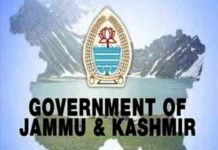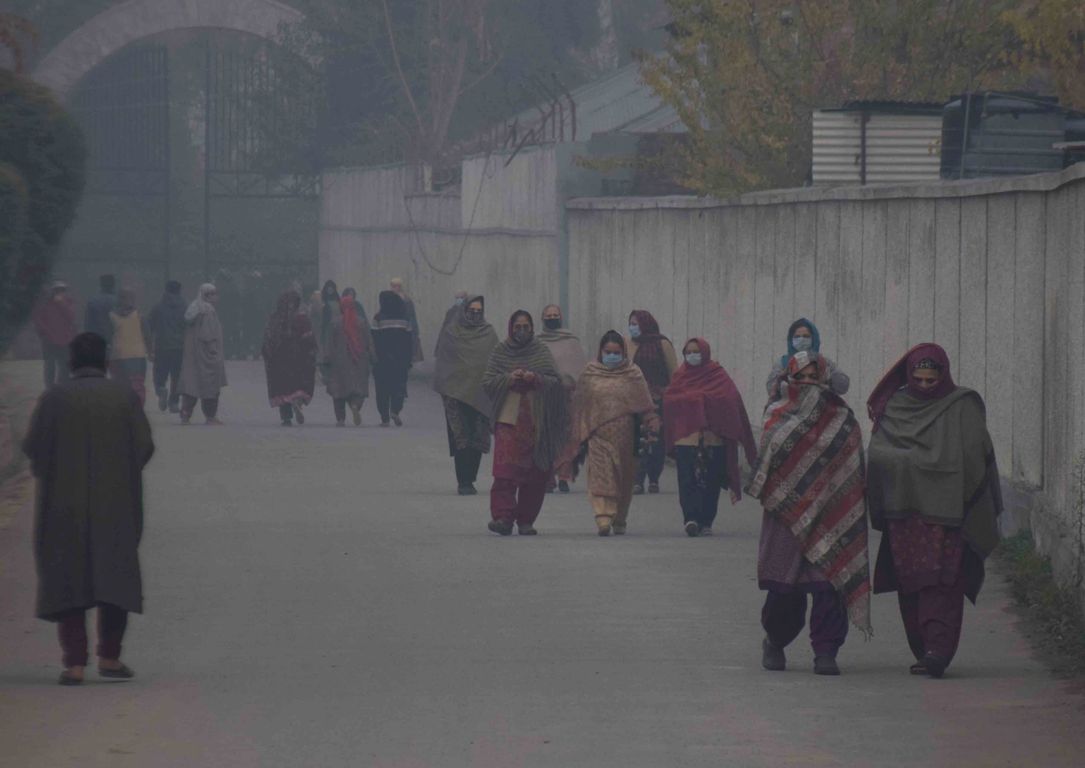KL NEWS NETWORK
SRINAGAR
J&K High Court Bar Association Kashmir Monday reiterated its stand on Kashmir and “in clear, categorical and unambiguous terms” stated that “Kashmir is an internationally accepted dispute and its resolution lies in the implementation of UN Security Council Resolutions”.
“Those who say that the so called accession of Kashmir with India is final are only befooling themselves and are rubbing salt in the wounds of Kashmiri people who for the last 69 years have been fighting for their Right of Self Determination and have given tremendous sacrifices for the same,” a Bar statement said this evening.
The Bar Association maintained that in terms of UN Security Council Resolutions of 21 April, 1948; 3 June, 1948; 14 March, 1950 and United Nation’s Commission for India and Pakistan resolutions of 13 August, 1948 and 5 January, 1949, “the final disposition of the State has to be made in accordance with the Will of people to be ascertained through a democratic method of a free and impartial plebiscite to be conducted under the auspices of the United Nations”.
“The Bar Association also makes it clear that in terms of UN Security Council Resolutions of 30 March, 1951 and 24 January, 1957, convening of a constituent Assembly on the recommendations of General Council of All J&K National Conference and all the actions of that assembly including the framing of a constitution for the State has been held and declared not to constitute a disposition of the State in accordance with the principles embodied in the resolutions passed by the UN Security Council on Kashmir,” the statement said.
“In terms of the constitution of India, Kashmir is an unsettled dispute and has to be resolved in accordance with the wishes of the people. In this behalf it is stated that in terms of provision to Article 3 of the Constitution of India, Parliament has the power to make law with regard to formation of any new State by separation of territory from any other state or by uniting two or more states or else to increase or diminish the area of any state or alter the boundaries of any state or change the name of any state, but in so far as the State of J&K is concerned, no bill providing for increasing or diminishing the area of State of J&K or changing the name or altering the boundaries of the State can be introduced in the Indian Parliament, without the consent of the legislature of the State, which legislature has to be brought into existence, only for the purposes of determining the said question,” the statement added.
“Similarly in terms of Article 35–A, no existing law in force in the State of J&K and no law enacted by the legislature of the state, after the coming into force of Constitution (Application to J&K) Order 1954, defining the classes of the persons, who are or shall be the permanent residents of the State of J&K, can be altered by the Parliament.”
“The Proviso to Article 253 also provides that after the commencement of the Constitution (Application to J&K) Order 1954 no decision affecting the disposition of the State of J&K, can be made by the Government of India without the consent of the Government of the State, which Government has to be brought into existence in terms of the Security Council Resolutions, with a plenary power to determine the said disposition,” the statement said.
“Article 370, which is temporary in nature, also finds its place in the Constitution of India, because the constituent Assembly of India in view of the Security Council resolutions did not dare to include the State of J&K with Indian Union as it had international ramifications. The said provision still exists in the Indian Constitution and it cannot be abrogated because Article 370 itself stipulates that the said provision of law cannot cease to be operative without the recommendations of the constituent Assembly of the State, which constituent Assembly has since ceased to exist and there is no possibility of any recommendations being made by the said Assembly now.
Once the matter is examined in the aforesaid context, it is clear that the so called accession of the State of J&K with Indian Union is in no way final or absolute and that the resolution of the Kashmir dispute lies in the implementation of the UN Security Council Resolutions for establishing peace and tranquillity in the sub-continent,” the statement further said.
“The Bar Association makes it further clear that Pakistan has suffered and has become the target of terrorism, only because, it has supported the cause of the people of Kashmir politically, diplomatically and morally. Once Kashmir issue is settled in accordance with the wishes of the people of Kashmir, there will be peace, not only in India, but also in Pakistan and the people of South Asia, will also benefit from the same and in case Kashmir issue is not settled, there will be always chances of war between the two neighbouring nuclear countries, which will cause damage and destruction all over,” the statement said.















